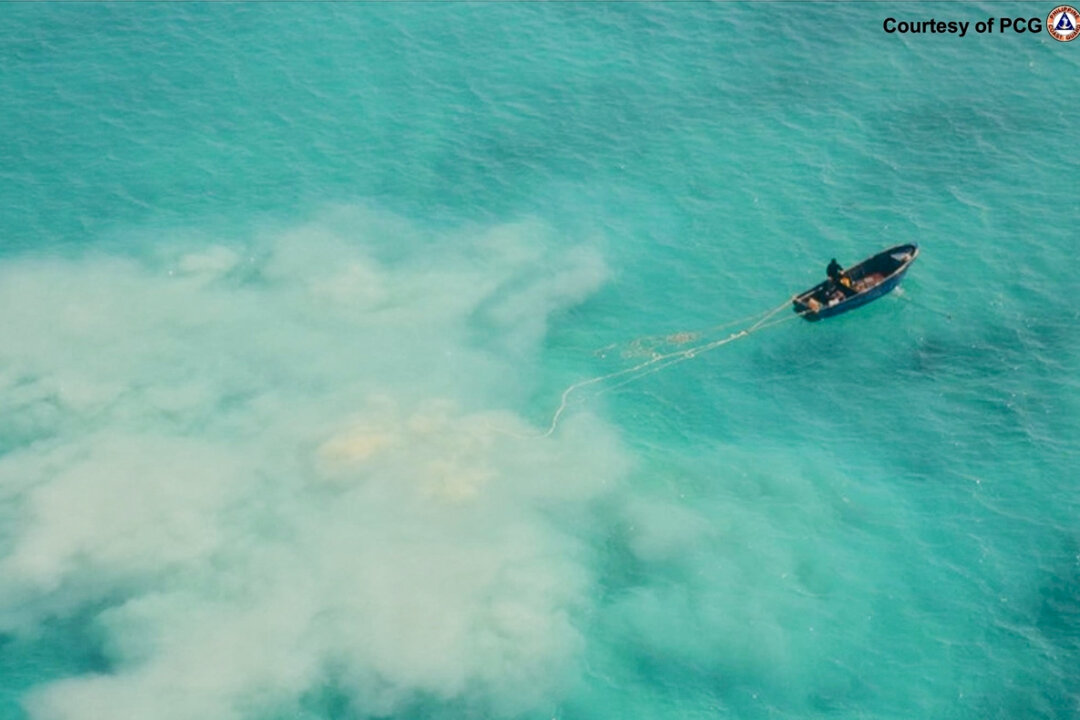China said to be responding to President Marcos’s signing two measures strengthening Philippine sovereignty in the South China Sea.
The Chinese communist regime has stepped up its pressure on the Philippines to give up sovereign rights, days after the island nation’s president signed two maritime laws that angered Beijing, according to Filipino Defense Secretary Gilberto Teodoro.
“What we see is an increasing demand by Beijing for us to concede our sovereign rights in the area,” Teodoro said on Nov. 12 after meeting Australian Deputy Prime Minister and Minister for Defense Richard Marles, the fifth such meeting in a little over a year.
The Philippines and Australia have increased cooperation amid growing concerns about Chinese military aggression in the South China Sea, where the Chinese communist regime has disputed the Philippines’ territorial claims.
On Nov. 8, Filipino President Ferdinand Marcos Jr. signed into law the Maritime Zones Act, which defined the nation’s waters and exclusive economic zones in accordance with international law. He also signed the Philippine Archipelagic Sea Lanes Act, which designates specific sea lanes for foreign vessels.
“Our people, especially our fisher folk, should be able to pursue their livelihood free from uncertainty and harassment,” Marcos said. “We must be able to harness mineral and energy resources in our sea bed.”
The Chinese Communist Party’s (CCP’s) foreign ministry summoned the Philippines ambassador to object to these laws, calling the acts “illegal” and an infringement of Chinese sovereignty.
The United States backed the Philippines, with the U.S. State Department stating that zones designated by the Philippines were following the 1982 Law of the Sea Convention and a 2016 ruling by the International Arbitral Tribunal in The Hague.
CCP spokespersons, meanwhile, said the international law and ruling were “illegal” and made without the regime’s consent, unilaterally rejecting them while warning the Philippines that its new laws would “wide[n] the dispute and complicate the situation.”
Confrontations between Chinese forces and Philippine patrol vessels have risen in recent months, with Chinese vessels firing water cannons at Philippine ships and blocking resupply missions.
The CCP claims nearly all of the South China Sea as its territory and has also passed a law that it claims gives it authority to punish would-be trespassers. The region is believed to be rich in minerals and sees some $3 trillion in trade pass through its waterways annually. The South China Sea overlaps with the waters and borders of Brunei, Indonesia, Malaysia, the Philippines, and Vietnam.
In 2016, the Philippines sought a legal remedy to the decades-long dispute, and The Hague issued a ruling that the CCP’s claims to the waters were meritless.
The CCP has ignored the ruling and increased patrols in waters it views as its territory. Other nations in the region have increased strategic partnerships to counter Chinese military aggression and what they describe as provocation and destabilization of the region.
The Philippines and Australia signed their first strategic partnership in September 2023, holding their first joint sea and air patrols in the South China Sea months later.
Marles said on Nov. 12 that Australia wanted to work more closely with the Philippine defense industry and would send an engineering assessment team there early next year.
The Philippines has also strengthened ties with the United States, increasing the number of bases accessible to the United States from five to nine in recent years.
The United States has proposed $128 million for infrastructure improvements at those bases in addition to a $500 million pledge for the Philippine military and coast guard.
Reuters contributed to this report.

